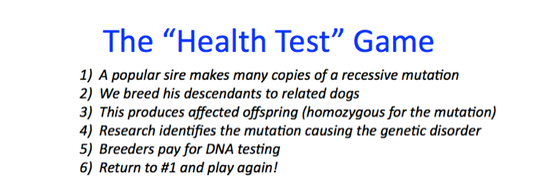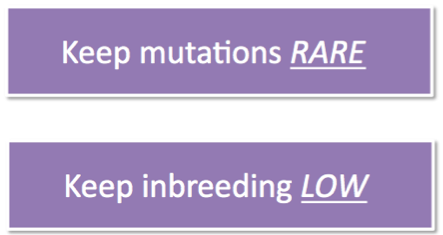Every dog in your breeding program has recessive mutations you don't know about. (See The fiction of "knowing your lines".) It simply isn't true that if you breed only healthy parents, you will produce only healthy offspring. That's like assuming that it's safe to cross a battlefield because you can't see any land mines. They are there, and if you tromp around long enough, you'll find them.
Really, it's this simple.
"Health testing" will not eliminate genetic disorders in dogs. (See Why DNA tests won't make dogs healthier.) We know how to fix this problem. We just need to do it.
ICB's online courses
*******************
Join our Facebook Group
ICB Breeding for the Future
...the science of dog breeding
*******************
Visit our Facebook Page
ICB Institute of Canine Biology
...the latest canine news and research




